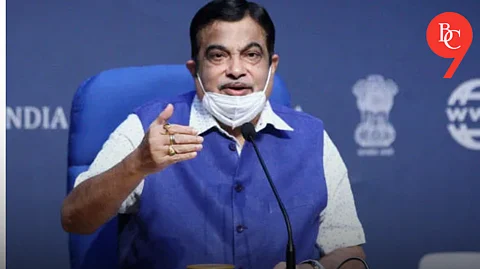

Union Minister Nitin Gadkari has reaffirmed India’s ambition to emerge as the world’s largest electric vehicle (EV) manufacturer within the next five years, driven by policy incentives, technological advancements, and a rapidly growing domestic market. Speaking at various industry forums, Gadkari highlighted the government’s commitment to fostering EV adoption and building a robust ecosystem for manufacturing and innovation.
India’s EV market is expected to touch ₹20 lakh crore by 2030, with annual sales projected to reach 10 million units across all categories, including two-wheelers, three-wheelers, passenger vehicles, and commercial vehicles.The EV financing market is estimated to grow to ₹4 lakh crore, creating significant opportunities for investors. Gadkari emphasized that the EV sector could generate up to 5 crore jobs by 2030, spanning manufacturing, R&D, infrastructure development, and renewable energy integration.
The government has approved policies allowing limited imports of EVs at reduced customs duty for companies setting up manufacturing facilities in India.Initiatives like the FAME II scheme, vehicle scrappage policies, and subsidies for small EVs aim to make electric mobility more affordable and accessible.Gadkari noted that the cost of lithium-ion batteries is expected to decrease further, fueling mass adoption of EVs. India is also promoting domestic manufacturing of battery cells to reduce dependency on imports.India is gearing up to export electric vehicles globally, with a special emphasis on two-wheelers and three-wheelers. Indigenous manufacturers are improving product quality to compete internationally.
While India’s EV adoption rate remains modest,approximately 6% across all vehicle categories,the sector has witnessed remarkable growth in recent years. In FY24 alone, EV sales grew by 45%, with over 30 lakh registered EVs, primarily driven by two-wheelers (56% of total sales).More than 400 startups have entered the EV space, particularly in the two-wheeler segment, showcasing innovation and entrepreneurship in the industry. However, challenges such as affordability of batteries, limited charging infrastructure, and consumer awareness need to be addressed for accelerated adoption.
Gadkari has consistently advocated for a transition to clean energy solutions as part of India’s broader commitment to combating climate change. Charging stations powered by renewable energy will reduce strain on the grid while promoting eco-friendly practices.By incentivizing scrappage of old polluting vehicles, manufacturers can reduce production costs by up to 30%, making EVs more affordable.Beyond electric mobility, Gadkari highlighted hydrogen fuel technology as a key driver for future automotive growth in India.
India’s ambitious plan to become the world’s largest EV manufacturer reflects its commitment to sustainable development and technological leadership. With supportive government policies, growing consumer demand, and advancements in battery technology, the country is poised to revolutionize global electric mobility.
